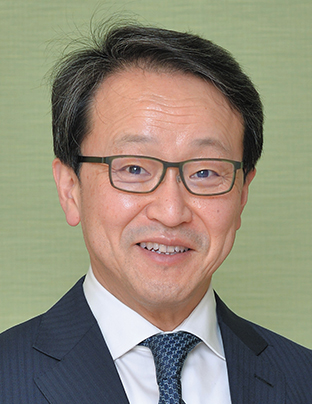english
Greetings from the President.
Visitors to the website of the Japanese Society for Social Psychiatry (JSSP).

The Japanese Society for Social Psychiatry (JSSP) was founded in April, 1981 at the National Institute of Mental Health, in Ichikawa City, Chiba Prefecture, Japan. The purpose was to promote research in the field of social psychiatry, and to contribute to its progress, and development.
The discovery of chlorpromazine (1952) and its widespread use in clinical psychiatry enabled some control of the psychiatric symptoms of schizophrenia and other psychiatric disorders. The discovery also radically changed clinical practice.
In Europe and North America, the era of long-term, inpatient treatment in psychiatric hospitals came to an end. This initiated a new phase of deinstitutionalization, witnessing the development of community care.
In the 1960s and 1970s, basic data collection aimed at improving mental ‘hygiene’ advanced, and there was growing awareness of the need to promote social psychiatric research focusing on epidemiology.
In Japan, The Japan Bulletin of Social Psychiatry was first published in 1978, as a forum for psychiatrists and other professionals to present and share research on psychosocial and epidemiological studies of psychiatric disorders. Supporting investigative research deriving from the practice of psychiatric care, it soon developed into an academic society.
The scope of social psychiatry is wide-ranging and possesses considerable depth. Medicine is a discipline with origins in health, prevention, and the treatment of individuals. From the perspective of medicine as a biological science, the subject of psychiatry is the brain. However, society is a collection of individuals; in other words, both brain-to-brain interactions and brain-to-environment interactions both construct the fabric of society.
Psychiatry is a science that studies the social activities of people, and it is the field that requires a perspective that observes and considers relationships. However, society is constantly changing. With the advent and wide use of the Internet, the tools of human communication have changed dramatically. The way people meet has changed also.
Furthermore, the demographic composition of Japan is likewise changing exponentially as we enter a society with an unprecedentedly low birthrate. This drastically increases the elderly population, as well as driving depopulation. Numerous changes can be observed: the number of foreign citizens increases and disparities widen, due to non-regular/unstable employment and poverty. Change is also apparent in the nature of families, and the sense of value of individuals, as well as the way we, as individuals, cope with anxiety and tension.
The mission of The Japanese Society for Social Psychiatry is to swiftly recognize the existence of emerging social psychiatric issues and needs, by looking at the whole through the individual, seizing the larger perspective, and then returning it to the individual.
It is not sufficient to share the results of discussion and research solely within the perimeters of the professional academic community. Therefore, we work continuously to provide space for social psychiatric discussion and expand literacy in a more understandable manner, by expanding the forum for discussion by means of the annual conference and the journal.
JSSP welcomes the participation of various professions. We believe that such diversity in JSSP enriches our ideas and enables us to communicate about various forms of clinical psychiatry. For that purpose, it is important that JSSP is open and capable of sharing its activities with a diversity of persons. This will enable more people to know about social psychiatry and its mission.
Since joining JSSP in 1996, I have had the opportunity to learn diverse aspects of clinical psychiatry over the past quarter of a century.
JSSP laid the foundation for me as a psychiatrist and gave me the unique opportunity to present my own work. I resolve to make humble efforts to develop JSSP further and to provide its members, especially younger members from various disciplines, with a place to acquire the fundamentals of social psychiatry and to grow thereafter.
We look forward to your continued support for The Japanese Society for Social Psychiatry.
Masafumi Mizuno
(Hospital Director, Tokyo Metropolitan Matsuzawa Hospital)
Biography
Graduated from Keio University, School of Medicine, 1986, completed the doctoral course at Keio University Graduate School of Medicine, 1992, studied at University of Padua Department of Psychology, Italy, as a visiting professor, 1993-95. He has been Director of Tokyo Metropolitan Matsuzawa Hospital since 2021. He has been a member of the editorial board of the JSSP journal since Volume 13, in 2004, a permanent board member since April 2006, and the Editor-in-chief since Volume 17, in 2008. He was elected Vice President in 2010 and has been President since 2016.